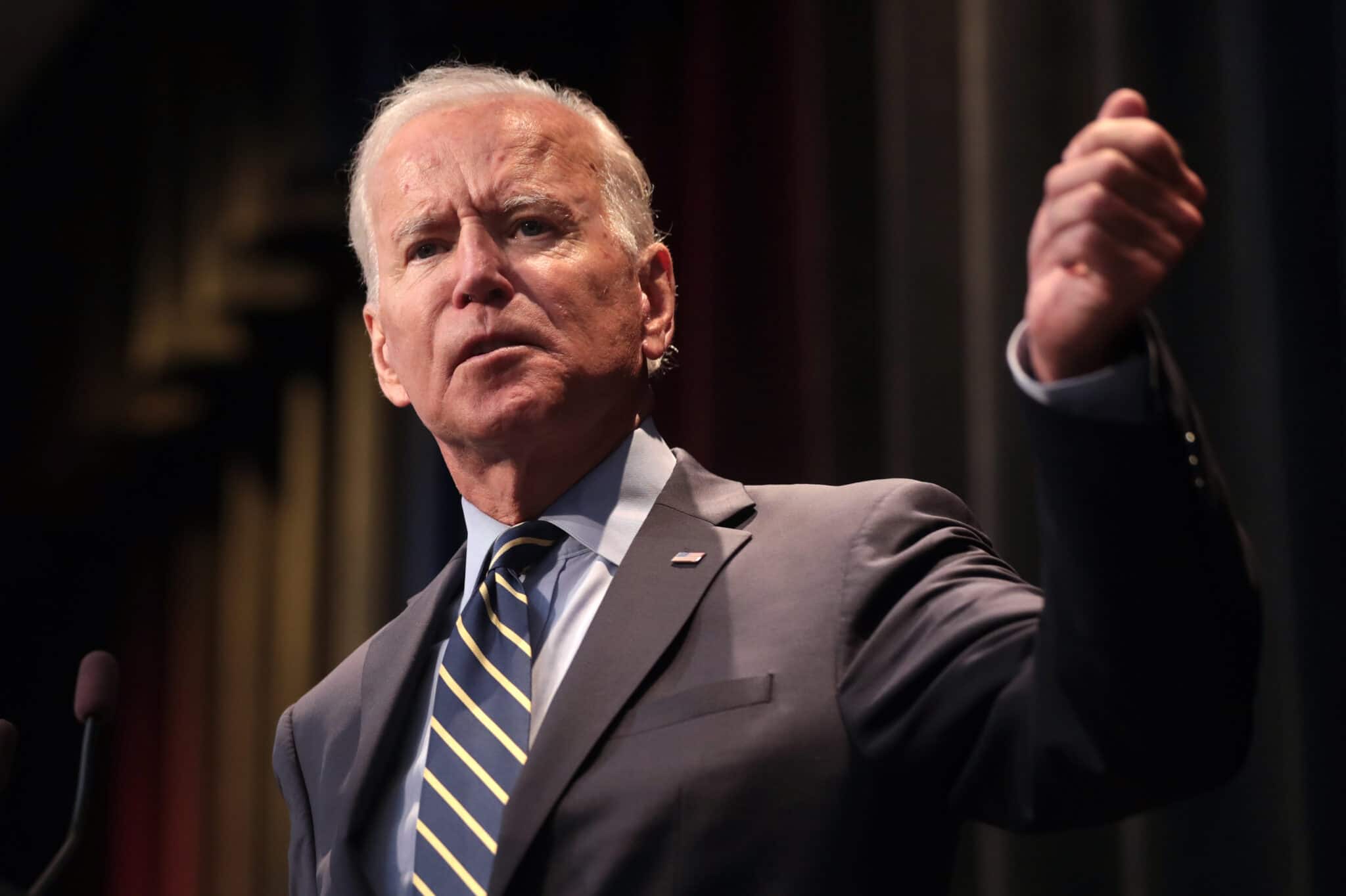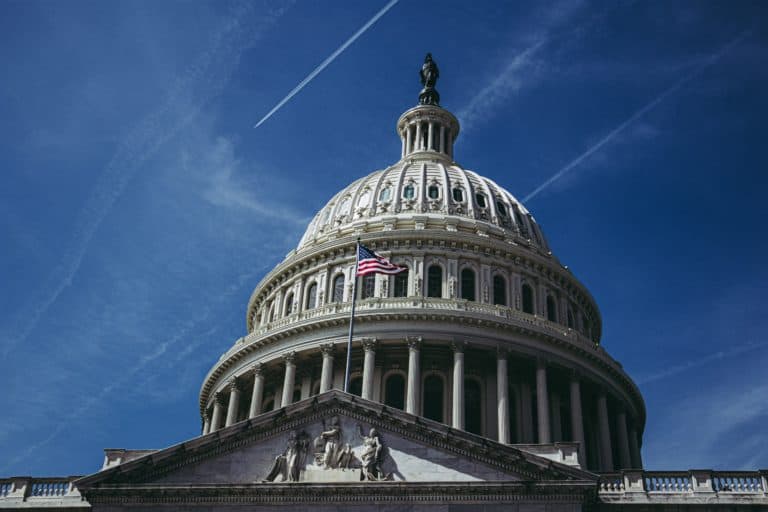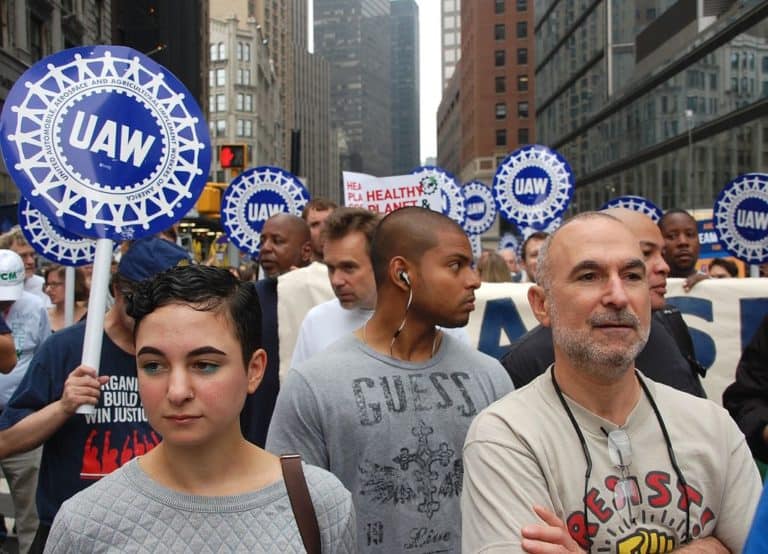
Sharon Block is a Professor of Practice and the Executive Director of the Center for Labor and a Just Economy at Harvard Law School.
I think it is fair to say that based on President Biden’s first State of the Union (SOTU) address, the state of labor’s interests in the Biden Administration is strong. Even before President Biden entered the House Chamber Tuesday night, Biden sent a signal about how central the labor movement is to his presidency. Starting with President Reagan, presidents have used invitations to sit with the First Lady during SOTU as symbols of their values. Last night, of the nine invited guests, two were union members: JoJo Burgess, a Steelworker from Pittsburgh, and Refynd Duro, a unionized nurse from Ohio.
Before getting into the substance of the speech, I want to explain why tallying policy references is important. Pundits and reporters often dismiss the oratorical value of State of the Union addresses by describing them as more often a laundry list of the president’s policy priorities than a rhetorical triumph. While it may be true that few presidents reach great oratorial heights while delivering their annual addresses, the “laundry list” label obscures just how precious the real estate is on the SOTU pages. Having had the privilege of a behind-the-scenes look at how a SOTU address comes together, I can assure you that many, many hard choices are made about what to include and that mention of many important policies are cut. The lobbying among senior officials and advisors for a piece of that precious real estate can be quite vigorous. With all the crises facing this Administration, the SOTU real estate was more precious than usual with Biden’s first address.
A spot in the speech not only sends an important signal about the president’s values and priorities; it also accelerates the process within the Administration for approving and implementing the policy. That may sound reductive but when the clock starts ticking down towards midterms or the end of an Administration, any small time saver in the process may be the difference between a priority implemented and a priority that remains notional. If the president mentions a policy in SOTU, policy officials within the Administration get to skip all the meetings about whether to do the policy and go directly to how to implement the policy.
With that background, let’s start with what was in the speech. There was a lot that demonstrated Biden’s deep commitment to the traditional labor movement. Based on last night’s speech, we should expect the Administration to continue to frame its economic message around how middle-class workers are faring. Biden opened the economic section of his speech with strategies to create more American construction and manufacturing jobs. He repeatedly came back to his commitment to “Buy America” policies and his success in passing the infrastructure bill. He said that these policies are important because they create good jobs for American workers. It was heartening to hear that frame and not a corporate-oriented justification based on expected GDP growth. In this section of the speech, he name-checked one of the most pro-union members of Congress, Senator Sherrod Brown. He also promised to expand apprenticeship programs. These are all policies that appeal most to the Building Trades, UAW, Machinists and other affiliates of the AFL-CIO.
Biden turned one of the most anticipated sections of the speech into an opportunity to speak out for middle-class workers. In talking about his plans to tackle inflation — by many accounts the issue that most concerns voters — he delivered one of the speech’s more memorable lines. He called on corporations to keep prices under control by “lowering your costs, not your wages.”
Biden also raised many of the pro-worker policies that he included in his campaign promises. He ticked through a list of workers’ rights bills that have long resided at the top of Congressional Democrats’ legislative wish list but that have been blocked by Republican filibusters: the Protecting the Right To Organize Act, the Paycheck Fairness Act, paid family- and medical-leave bills, and a $15 minimum wage. Even if these bills can’t pass in this Congress, his continued elevation of them is important because it gives Democrats running in the midterms concrete examples of what they would hope to accomplish with the Biden Administration if voters would give them bigger majorities. One side note: The White House fact sheet referred to the PRO Act as the Trumka PRO Act. While there has been much talk of renaming the bill after the late AFL-CIO president, the versions introduced in the House and Senate have not yet been renamed.
What wasn’t in the speech — new strategies for making work better for the ninety plus percent of private-sector workers who aren’t in unions and, under traditional labor law, most of whom probably never will be, even if they want to. I was surprised that he never spoke of “essential workers,” the term that during the pandemic has come to personify the tragedy of how bad work has become for so many low-wage workers of color, especially in retail, food service and healthcare. There also was no mention of the recommendations in the White House Task Force Report on Worker Organizing and Empowerment. It may be unfair to expect even more from a president who has earned the title of the “most pro-labor president since FDR,” by talking more positively about unions, more frequently to union members, and more directly in support of workers engaged in labor disputes than any of his recent predecessors. But with the old approaches failing so many workers, I held out hope that some of the most precious real estate in D.C. Tuesday night would be devoted to something new. I was left with gratitude that President Biden underscored his commitment to labor but also a recognition that it remains necessary for all of us who care about the future of labor to do our part to always work for more.










Daily News & Commentary
Start your day with our roundup of the latest labor developments. See all
February 19
Union membership increases slightly; Washington farmworker bill fails to make it out of committee; and unions in Argentina are on strike protesting President Milei’s labor reform bill.
February 18
A ruling against forced labor in CO prisons; business coalition lacks standing to challenge captive audience ban; labor unions to participate in rent strike in MN
February 17
San Francisco teachers’ strike ends; EEOC releases new guidance on telework; NFL must litigate discrimination and retaliation claims.
February 16
BLS releases jobs data; ILO hosts conference on child labor.
February 15
The Office of Personnel Management directs federal agencies to terminate their collective bargaining agreements, and Indian farmworkers engage in a one-day strike to protest a trade deal with the United States.
February 13
Sex workers in Nevada fight to become the nation’s first to unionize; industry groups push NLRB to establish a more business-friendly test for independent contractor status; and UFCW launches an anti-AI price setting in grocery store campaign.